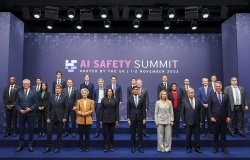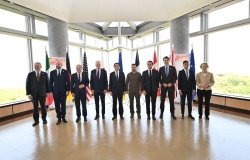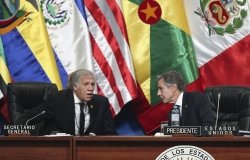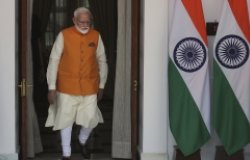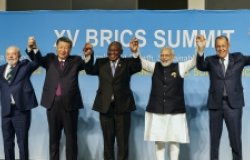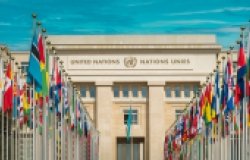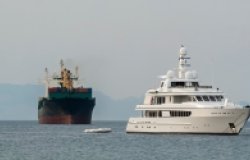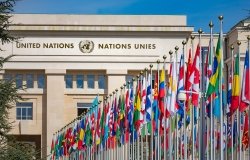Is Canada Sleeping? Re-Examining Canada's Role in the World
Andrew Cohen discussed his book, While Canada Slept: How We Lost Our Place in the World, which argues that Canada suffers from a lack of foreign policy vision and has allowed its tools of diplomatic influence to deteriorate.
Overview
Although many Canadian observers have chronicled and bemoaned the decline of Canadian military power, few have also noted a general deterioration in Canadian foreign policy. The most recent work of journalist and scholar Andrew Cohen bridges this theoretical gap with an account of the rise and fall of Canada's international influence. In his recent Canadian bestseller, Is Canada Sleeping? Re-examining Canada's Role in the World, Cohen argues that Canada suffers from a lack of foreign policy vision and has allowed its tools of diplomatic influence to deteriorate. Cohen asserts that this deterioration of military might, foreign aid, and foreign service institutions catalyzed the decline of Canada's global influence and status as a strong middle power. Recalling the 1950s and 1960s when Canada was the world's foremost arbiter of international conflict, a pioneer of peacekeeping, and a leading dispenser of foreign aid, Cohen noted that these extensive foreign policy investments paid a dividend of global influence that far exceeded the sum of Canada's actual powers, a global influence that he maintains has disappeared almost altogether.
Cohen shared his reading of the past, present, and future of Canadian foreign affairs with an overflow audience at the Wilson Center in an event co-hosted with the Canadian American Business Council. Cohen first evoked the "golden age" of Canadian global influence and described the size, strength, and various competences of the "three arms of (Canadian) internationalism": the military, the foreign service, and foreign aid programs. Cohen then contrasted the capabilities of these arms in previous decades to their present capabilities, noting, "We are a shadow of what we were." He admitted that financial constraints during the 1980s limited foreign policy options, but current Canadian prosperity and a balanced federal budget could allow Canada to renew its commitment to internationalism and regain its lost status. Increased involvement abroad is not merely an option, he said, but an obligation. He stated, "for a country of our history, geography, and prosperity, we don't do enough." Cohen called for a nation-wide dialogue to allow Canadians to voice their foreign policy priorities as a central task in his ambitious vision for the future of Canadian foreign affairs, which included increased military spending, the development of a foreign intelligence service, more focused foreign aid programs, and an improved foreign service.
Professor Michael Hawes provided a somewhat dissenting perspective, contending that the breakdown of the Cold War system resulted in a change in the norms of the geopolitics. Thus much of what Cohen interprets as foreign policy decay is merely evidence of change in the various tools of diplomatic influence. Hawes also attributes Canada's declining global status to heavy geopolitical competition from rising middle powers such as India and China rather than exclusively the result of a decline in Canada's foreign policy-making abilities. However, Hawes did concur with Cohen's assertion that a comprehensive national dialogue and self-assessment is imperative; he, too, "longs for a serious debate on the future of Canadian foreign policy."
David Biette
Director, Canada Institute
202-691-4133
Drafted by Melissa L. Bell
Hosted By

Canada Institute
The mission of the Wilson Center's Canada Institute is to raise the level of knowledge of Canada in the United States, particularly within the Washington, DC policy community. Research projects, initiatives, podcasts, and publications cover contemporary Canada, US-Canadian relations, North American political economy, and Canada's global role as it intersects with US national interests. Read more
Thank you for your interest in this event. Please send any feedback or questions to our Events staff.

